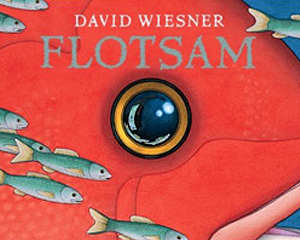Alien primarily refers to:
Resident Evil, known in Japan as Biohazard, is a Japanese horror media franchise created by Shinji Mikami and Tokuro Fujiwara, and owned by the video game company Capcom. The franchise focuses on a series of survival horror games and includes live-action films, animated films, comic books, novels, audio dramas, and merchandise. The story follows outbreaks of zombies and other monsters created mainly by the Umbrella Corporation.
A testament is a document that the author has sworn to be true. In law it usually means last will and testament.
A dune is a hill of sand.
Unnatural selection is a play on the term natural selection that implies artificial selection. As a title, Unnatural Selection may refer to:
A golem is an artificial animated being in medieval and Jewish folklore.
The Quill Award was an American literary award that ran for three years in 2005-2007. It was a "consumer-driven award created to inspire reading while promoting literacy." The Quills Foundation, the organization behind the Quill Award, was supported by a number of notable media corporations, including Reed Business Information, then parent of Publishers Weekly, and NBC Universal Television Stations, along with Parade Magazine, Borders, Barnes & Noble and the American Booksellers Association.

David Wiesner is an American illustrator and writer of children's books, known best for picture books including some that tell stories without words. As an illustrator he has won three Caldecott Medals recognizing the year's "most distinguished American picture book for children" and he was one of five finalists in 2008 for the biennial, international Hans Christian Andersen Award, the highest recognition available for creators of children's books.

In English-speaking popular culture, the modern pirate stereotype owes its attributes mostly to the imagined tradition of the 18th century Caribbean pirate sailing off the Spanish Main and to such celebrated 20th century depictions as Captain Hook and his crew in the theatrical and film versions of Peter Pan, Robert Newton's portrayal of Long John Silver in the 1950 film adaptation of the novel Treasure Island, and various adaptations of the Eastern pirate, Sinbad the Sailor. In these and countless other books, movies, and legends, pirates are portrayed as "swashbucklers" and "plunderers." They are shown on ships, often wearing eyepatches or peg legs, having a parrot perched on their shoulder, and saying phrases like "Arr, matey" and "Avast, me hearty." Pirates have retained their image through pirate-themed tourist attractions, traditional film and toy portrayals of pirates, and the continued performance and reading of books and plays featuring pirates.

Flotsam is a children's wordless picture book written and illustrated by David Wiesner. Published by Clarion/Houghton Mifflin in 2006, it was the 2007 winner of the Caldecott Medal; the third win for David Wiesner. The book contains illustrations of underwater life with no text to accompany them.

Tuesday, written and illustrated by David Wiesner, is a 1991 wordless picture book published by Clarion Books. Tuesday received the 1992 Caldecott Medal for illustrations and was Wiesner's first of three Caldecott Medals that he has won during his career. Wiesner subsequently won the Caldecott Medal in 2002 for The Three Pigs, and the 2007 medal for Flotsam.
Harry Potter is a series of fantasy novels by J. K. Rowling.

A Winter Book is a collection of twenty short stories by Finnish author Tove Jansson, published by Sort Of Books in 2006. The stories, some of which had not previously been published in English, were selected by Ali Smith, who also wrote the book's introduction and had previously reviewed The Summer Book for The Guardian. Thirteen of them are from Jansson's first book for adults, Sculptor's Daughter (1968), and the remaining seven are from four of her other works. Five were included in her 1998 Swedish language collection Messages (Meddelande), including the title piece, a partially fictionalised compilation of letters Jansson had received. They were translated into English from the original Swedish by Silvester Mazzarella, David McDuff and Kingsley Hart.

King Kong is an American media franchise featuring King Kong, initially created by Radio Pictures and its films over the years are currently owned by various other studios, including Toho, Paramount Pictures, Universal Pictures, and Warner Bros. The film franchise consists of 12 films, seven Hollywood films, two produced by Toho, and three direct-to-video animated films. The first film, King Kong, was directed by Merian C. Cooper and Ernest B. Schoedsack and released by Radio Pictures in 1933 and became an influential classic of the genre. Toho was later inspired to make the original Godzilla after the commercial success of the 1952 re-release of King Kong and the success of The Beast from 20,000 Fathoms (1953). The success of King Kong would go on to inspire other monster films worldwide. The popularity of the films has led to the franchise expanding to other media, such as television, music, literature and video games. King Kong has been one of the most recognizable symbols in American pop culture worldwide and remains a well-known facet of American films. The character of King Kong has become one of the world's most famous movie icons, having inspired a number of sequels, remakes, spin-offs, imitators, parodies, cartoons, books, comics, video games, theme park rides, and a stage play. His role in the different narratives varies, ranging from a rampaging monster to a tragic antihero.





